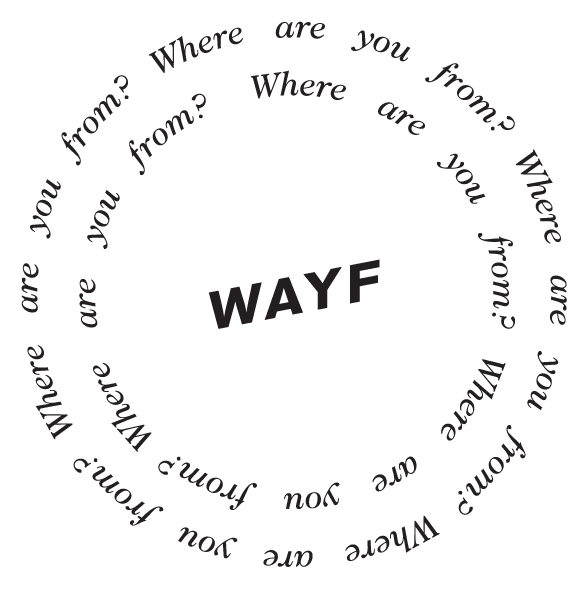Suzanne Claridge
“You are a terrorist”
“Why?”
“Because you have brown eyes.”
“What is that ‘dot’ on your forehead?”
“It’s a birthmark.”
“You speak English very well, where are you from?”
“I grew up here.”
“No, I mean, like, where are you from?”
The earliest memory I have of someone assuming that I am not from ‘here’ was during Primary School. I remember walking out of the bathrooms after school one day, when I was confronted by a boy with a group of kids behind him. I knew him and the other kids from my class. He had been waiting. Out poured the sentence – the uninformed exclamation – a racist slur: “You are a terrorist.” I was about twelve.
I whispered my response: “No I am not.” I can’t remember clearly what happened afterward. I only those words, thrown at me; and then staring into the mirror at my deep brown eyes and mixed features when I got home.
Throughout late Primary School and early high school I felt ashamed, I wanted to be invisible, I used my hair to hide the birthmark on my forehead; I thought I could hide my identity beneath my fringe. This mark, tied with my nationality, became an emblem to probe and interrogate. My mother told me it was where the sun kissed me.
Those who noticed my birthmark always followed with the question “so, where are you from?” as though I had ‘other’ branded on my face. I didn’t think much of it as a child. But when I got older, having accumulated experiences of how to navigate the world in this body; remnants of the memory of that small, white, blue-eyed child’s violent curiosity that day, emerged over and over again in different forms – different bodies, of different ages.
I grew up in Tasmania before moving to rural NSW where I finished high school. Having lived in Sydney for the past few years, I noticed that the assumptions that this question carries differ geographically. I know that people ask with good intentions; to share personal experiences, stories, and deepen their understanding, and I welcome that open dialogue, when it is free of judgement and superiority. I also know that, having been asked this question repeatedly, the curiosity attached can be sinister and, sometimes, fetishising.
When I am asked this question – mostly by strangers – the space I occupy in this world feels automatically complicated. I feel that the answer is nothing more than an exhaustive explanation of why I look the way I do, because simply saying that I grew up in Tasmania and have moved around a bit is never to their satisfaction. People will push on: “no, like, where are you from?” prompting an explanation of how I came to be. How my mother migrated to Australia from Fiji in her early twenties for work, then met my father. Then they’ll say, “So, you are Fijian?”
Well actually, no, my Naani’s great-grandfather was an indentured labourer from India, so technically Fiji-Indian.
“So, what part of India?”
At this point I usually want to facepalm myself. I don’t know why I go through the effort of answering these persistent, pressing questions. From both sides, both halves, lies a feeling of displacement. A result of forced movement. With this comes sensitivities to the history behind it, greater than my own physical being and life that has unfolded across these countries.
It feels like a continued assessment of where I fit, a way to ‘size me up’ next to the person posing the question and their understanding of where they should place me, of how I should be categorised in their ‘library of other’. It tells me I do not belong.
Where do I plant roots when I am a body without land? A precondition for existence that is alluded to when asked ‘Where are you from?’ Where is from. Is from this land? You are only from land if you are Indigenous to the land in question. Is from my mother’s womb? Is from a tangible place? In this question, from can be interchanged with: “where are you placed compared to me?” I never know how to respond. I am not ‘not’ from here, nor am I from the ‘there’ that you are hinting at.
I am neither from here, nor ‘there’. I sit somewhere in between; with exposed roots floating between oceans. I am from a place deeper within. A home within myself, which too, in that moment of being asked Where are you from?, is fluid, in transit; not quite within reach of hands that grab and examine in the physical realm.

